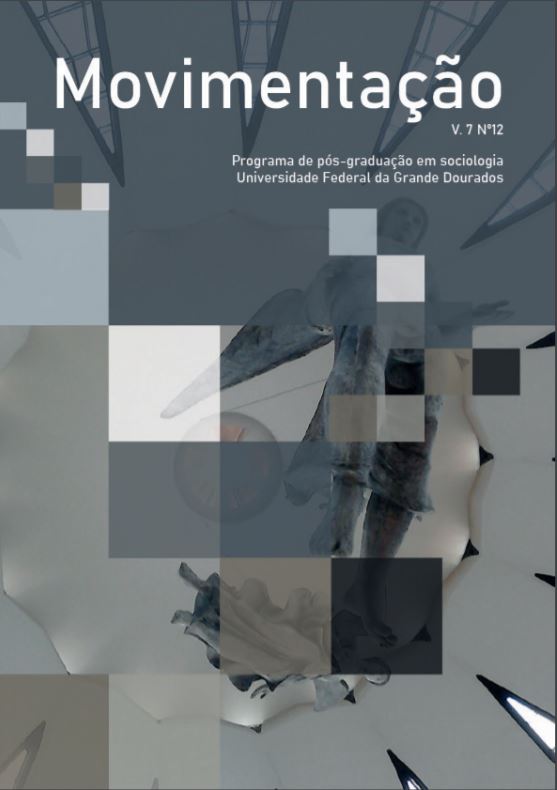The representation of homosexuality in the spiritist discourse of Divaldo Franco
DOI:
https://doi.org/10.30612/mvt.v7i12.11375Keywords:
Religion. Spiritism. Homosexuality.Abstract
This article aims to analyze the representation of homosexuality in the Brazilian spiritist religion based on the speeches of Divaldo Pereira Franco, medium and intellectual who currently influence religion in the country. For that, we use Discourse Analysis as a theoretical and methodological strategy to analyze the speeches given, and registered in diferent archives. It was observed that the constructed representations are based on the Christian and scientific perspective, reconfigured by the discursive mechanisms, internal and external, of the discourse itself. When constituting the discursive strategy, it will start to act in a way that the author/doctrine is (un)responsible for the punitive saying that is built around sex, sexuality and homosexuality, what we call the pedagogization of (de) accountability. This leads to the maintenance of the heterosexist logic of control and repression of sexualities seen as abnormal and minority.Downloads
References
AMORIM, P. P. “ROUSTAING: A CISÃO NO INTERIOR DA FEDERAÇÃO ESPÍRITA BRASILEIRA (1920 – 1922).” Revista Brasileira de História das Religiões. Maringá (PR) v. III, n.9, jan/2011. ISSN 1983-2859.
AMORIM, P. P. Muito além da unidade: a cisão no movimento espírita. In: AMORIM. (Org.). Muito além da unidade: a cisão no movimento espírita. 1ed.São Paulo: UNESP, 2012, v. p. 119-138.
ARRIBAS, Célia da Graça. Autoridades espíritas: critérios para tipologias e repartições das lideranças no espiritismo. In: SOUZA, André Ricardo de. Etal (org) Espiritualidade e espiritismo: Reflexões para além da religiosidade. Porto de Ideias. São Paulo. 2017.
BRASIL. Instituto Brasileiro de Geografia e Estatística. Censo Demográfico e Populacional Brasileiro de 2010.
BORRILLO, Daniel. Homofobia: História e Crítica de um preconceito. Autêntica Editora. Belo Horizonte. 2015.
FOUCUALT, Michel. História da Sexualidade. Vol. 1, 2014. Vol. 2, 2014. Vol. 3, 2017. Paz e Terra. Rio de Janeiro/São Paulo.
FOUCUALT, Michel. Os Anormais. Curso no Collège de France (1974-1974). Martins Fontes. São Paulo. 2001.
MISKOLCI, Richard. Desejos Digitais. Uma análise sociológica da busca por parceiros on-line. Belo Horizonte. Autêntica. 2017.
NATIVIDADES, Marcelo. Homossexualidade Masculina e Experiência Religiosa Pentecostal in Sexualidade, Família e Ethos Religioso. Garamond Editora. 2005.
NATIVIDADE, Marcelo Tavares. Deus me aceita como eu sou? A disputa sobre o significado da homossexualidade entre evangélicos no Brasil. Tese (Doutorado em Sociologia e Antropologia) – Universidade Federal do Rio de Janeiro, Instituto de Filosofia e Ciências Sociais, Rio de Janeiro. 2008.
ORLANDI, Eni Puccinelli. As Formas do Silêncio: no movimento dos sentidos. Editora da Unicamp. Campinas. 2007.
PEREIRA, Francisco Jomário. “TRANSAR PODE, MAS VOCÊ NÃO DEVERIA”: A Representação da Homossexualidade no Discurso Espírita Brasileiro. Tese de Doutorado em Sociologia- Universidade Federal da Paraíba. João Pessoa. 2020.
SOUZA, André Ricardo de. A livre religiosidade e a compulsória ciência do sociólogo da religião. Contemporânea – Revista de Sociologia da UFSCar, v. 5, n. 2, jul.-dez. 2015, pp. 289-325.
Downloads
Published
How to Cite
Issue
Section
License
Authors must accept the publication rules when submitting the journal, as well as agree to the following terms:
(a) The Editorial Board reserves the right to make changes to the Portuguese language in the originals to maintain the cultured standard of the language, while respecting the style of the authors.
(b) Authors retain the copyright and grant the journal the right to first publication, with the work simultaneously licensed under the Attribution-NonCommercial-ShareAlike 3.0 Brazil (CC BY-NC-SA 3.0 BR) that allows: Share - copy and redistribute the material in any medium or format and Adapt - remix, transform, and create from the material. CC BY-NC-SA 3.0 BR considers the following terms:
- Attribution - You must give the appropriate credit, provide a link to the license and indicate whether changes have been made. You must do so under any reasonable circumstances, but in no way that would suggest that the licensor supports you or your use.
- NonCommercial - You may not use the material for commercial purposes.
- Sharing - If you remix, transform, or create from material, you must distribute your contributions under the same license as the original.
- No additional restrictions - You may not apply legal terms or technological measures that legally restrict others from doing anything that the license permits.
(c) After publication, authors are allowed and encouraged to publish and distribute their work online - in institutional repositories, personal page, social network or other scientific dissemination sites, as long as the publication is not for commercial purposes.



